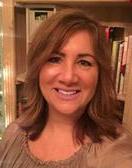 Photo by Jess Watters on Pexels.com
Photo by Jess Watters on Pexels.com
I believe everything we write comes from a place of experience or another person’s experience. We take what we know and we allow it to form our fictional writing.
The most frequently asked question I get besides “When do you find time to write?” is this one: “How much of you is in your character(s)?”
The honest answer would be a lot. There’s a lot of me in everything I write. And if it’s not me, it’s someone I know or it’s from a story I’ve read or heard about. Or, it could be a storyline that makes me wonder or wish I’d done something differently. When this happens, I work that changed decision into a story with characters and plot. We take what we know and what we’ve experienced—the good, the bad, and the ugly—and we turn it into fiction.
Which is why I can’t understand why fiction is sometimes criticized. There are reasons why writers turn these “real” stories into fiction—we have more leeway when we write that way, but it doesn’t mean we’re missing the theme or point of the story. We also can protect people by using fictional names and places or settings. We learn so much from fiction, and we can take those stories and lessons and apply them to our own lives.
Embedded within the book of 22 short stories I’m about to release is a lot of truth and life lessons either gleaned from others or myself. Each story has a point it reveals, and the plus of writing fiction is the freedom to make that point relevant in a chosen setting with creatively crafted characters.

As writers, we write about what we know, so naturally, we also take elements of people we know and build them into our characters. Quite often, the characters I write are a collection of people I have met or know; in most instances, it’s rarely one particular person, although some stories lend themselves to being about one particular person or instance. But I won’t tell you which ones. (wink, wink)
All this to say, while it’s called fiction, so much of it is truth. So much of it is based on feelings, emotions, decisions, choices, outlook, and a willingness to simply “live.” I love the freedom that comes from writing fiction, and if you’re someone who focuses only on nonfiction, I’d urge you to give fiction a try.
It really is a lot of fun.
Below is a video I made earlier in the week that discusses more about writing, using writing prompts, and the short story collection I’ve put together entitled The Postcard and Other Short Stories & Poetry. Coming in July.
Advertisements
